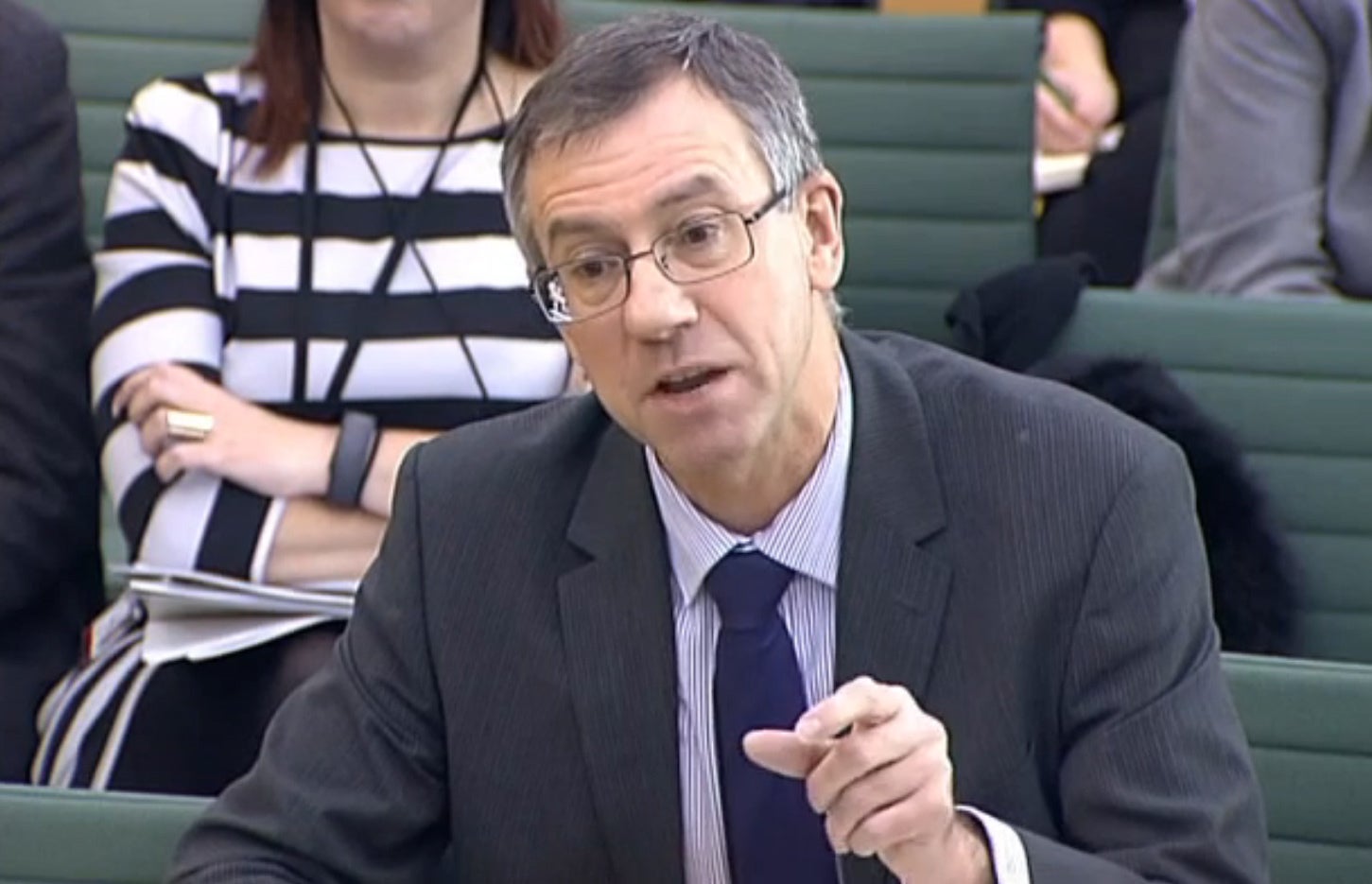Prison and probation chief to be replaced amid epidemic of violence and self-harm in jails
Michael Spurr tenders resignation after prisons service decides it is 'the right time to ask a new chief executive to take on this important role'

Your support helps us to tell the story
From reproductive rights to climate change to Big Tech, The Independent is on the ground when the story is developing. Whether it's investigating the financials of Elon Musk's pro-Trump PAC or producing our latest documentary, 'The A Word', which shines a light on the American women fighting for reproductive rights, we know how important it is to parse out the facts from the messaging.
At such a critical moment in US history, we need reporters on the ground. Your donation allows us to keep sending journalists to speak to both sides of the story.
The Independent is trusted by Americans across the entire political spectrum. And unlike many other quality news outlets, we choose not to lock Americans out of our reporting and analysis with paywalls. We believe quality journalism should be available to everyone, paid for by those who can afford it.
Your support makes all the difference.The boss of prison and probation is being replaced amid soaring levels of violence and self-harm in jails across England and Wales.
Michael Spurr, chief executive of HM Prison and Probation Service (HMPPS), has tendered his resignation after the permanent secretary decided that it was “the right time to ask a new chief executive to take on this important role”.
He will be leaving at the end of March 2019, after 35 years in the service and nearly nine years leading it.
It comes after inspectors found conditions in prisons across England and Wales to be the “worse they had ever seen” as authorities failed to take action over high levels of violence, self-harm and drug use.
Announcing the decision, permanent secretary of HMPPS Richard Heaton said: “Michael’s leadership has been exemplary. But we now need to look ahead, building on Michael’s work and developing a strategy for the next decade.
“I have therefore decided that April 2019 is the right time to ask a new chief executive to take on this important role.”
Justice secretary and lord chancellor David Gauke said: “I am extremely grateful to Michael Spurr for his leadership of HMPPS. His focus has been unwavering on doing the best for his staff and for victims of crime, on discipline in the prison estate and on caring for and rehabilitating offenders.
“He is an example of the very best of public service and civil service leadership. I look forward to continuing to work closely with Michael into the new year.”
Peter Dawson, director of the Prison Reform Trust, said Mr Spurr was an “exceptionally principled and knowledgeable leader who has selflessly served an endless succession of short term ministers”.
He added: “Whoever takes over will face the same fundamental problems of overcrowded and under resourced prisons. Those are problems which only ministers can address and none of those whom Michael has served so faithfully have delivered.
“Anyone who thinks the problems in our prisons can be solved by a change of leader is deluding themselves.”
Labour’s shadow justice secretary Richard Burgon said resolving the problems in UK jails would require more radical reform, stating: “The unprecedented crisis in our prisons is a direct result of the Conservatives’ decision to slash budgets and staffing levels.
“If the government really wants to put an end to this crisis then it needs to overhaul its policies. It should start with a national emergency plan and new treasury funds to end overcrowding and understaffing across the prison estate.”
In a sign of discontent among staff in the sector, prison officers launched a protest last week after the government was issued an official warning over the deteriorating jails for the fourth time in nine months.
But the action was called off within hours following an agreement between the Prison Officers’ Association (POA) and prisons minister Rory Stewart.
The urgent notification issued by the HM Chief Inspector of Prisons Peter Clarke over Birmingham jail last month – the first to be issued to a privately-run jail – warned that it had “slipped into crisis” following a “dramatic deterioration”.
Subsequent attempts by the government to improve the state of the jail by removing hundreds of prisoners and transferring in more officers were criticised, with campaigners warning that this would “heap more pressure” onto other struggling jails.
Earlier this year, Mr Clarke said “repeated patterns of failure” had led to a point where staff are inured to conditions that have “no place in an advanced nation in the 21st century”.
Violence, drug use and self-harm all remain issues, with assaults and self-harm having reached a record high in the past year, his annual report found.
Join our commenting forum
Join thought-provoking conversations, follow other Independent readers and see their replies
Comments